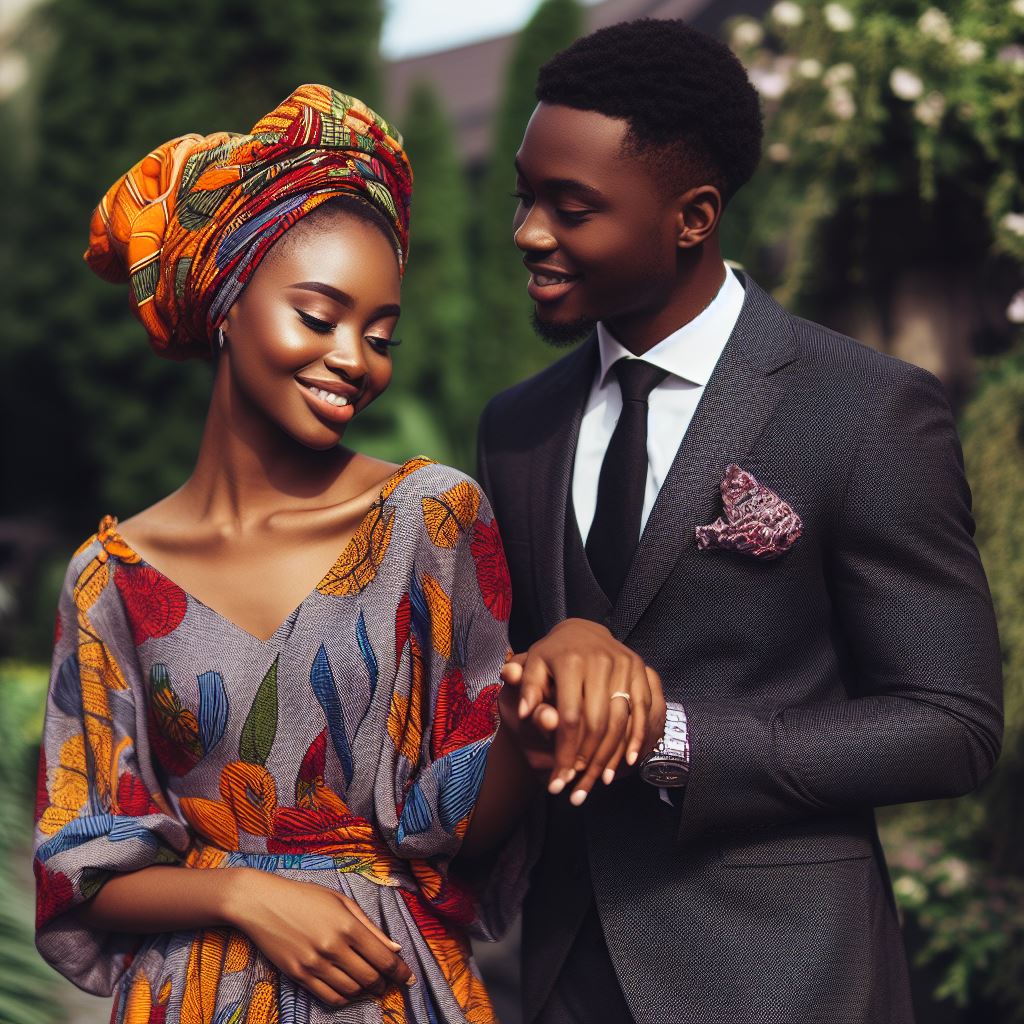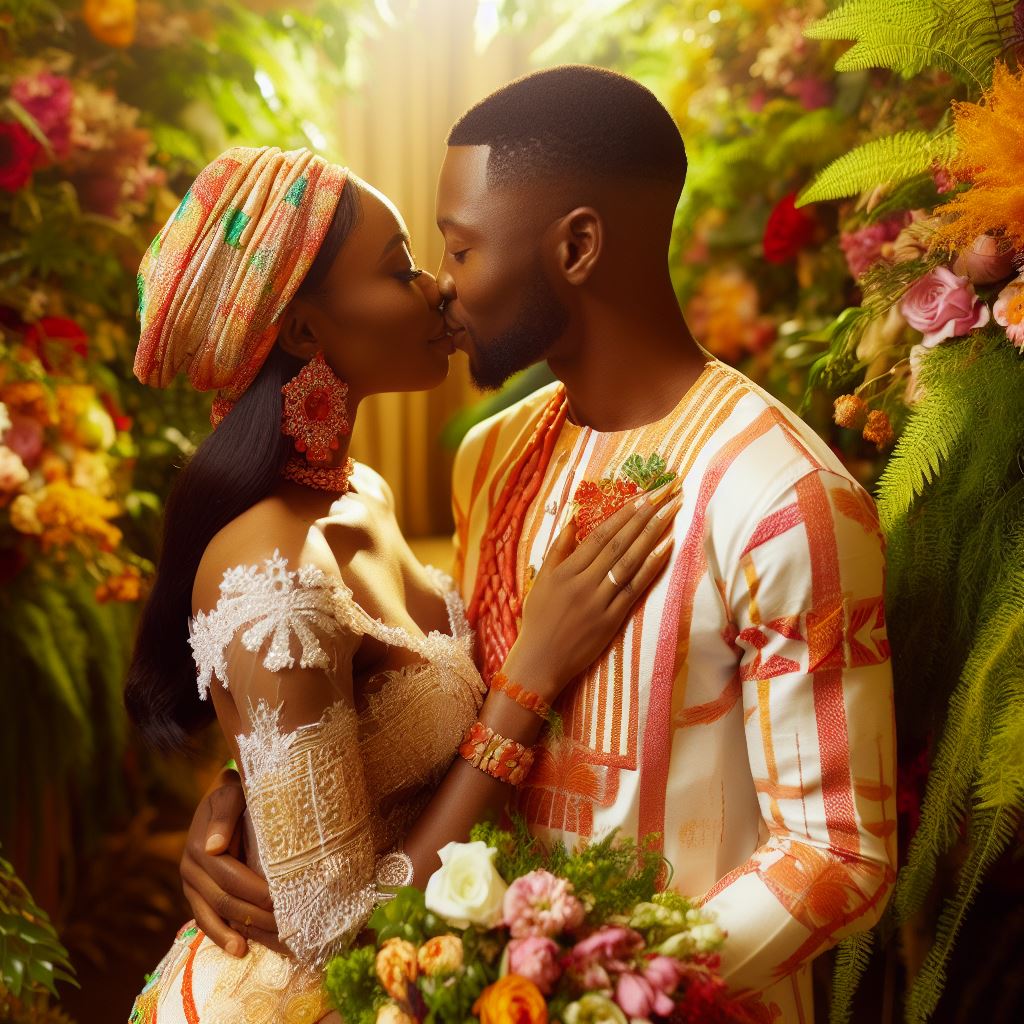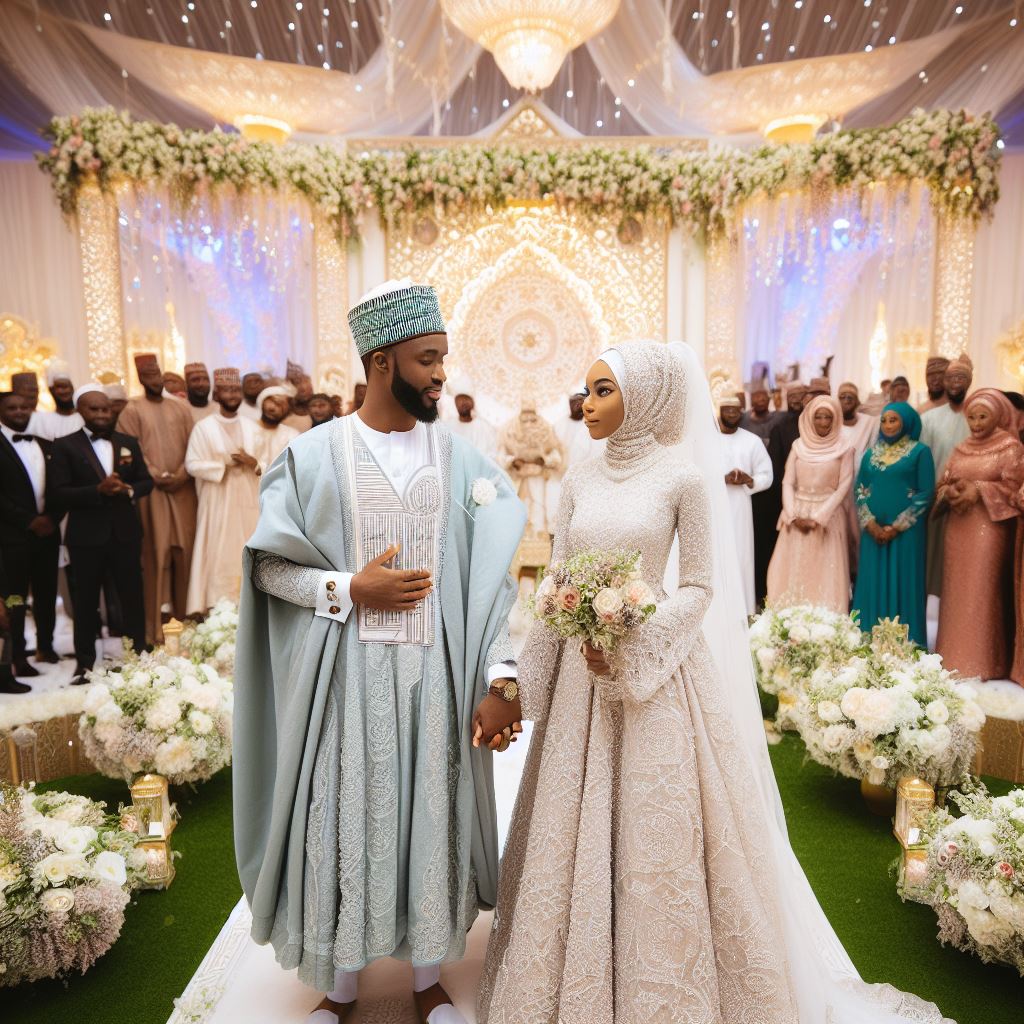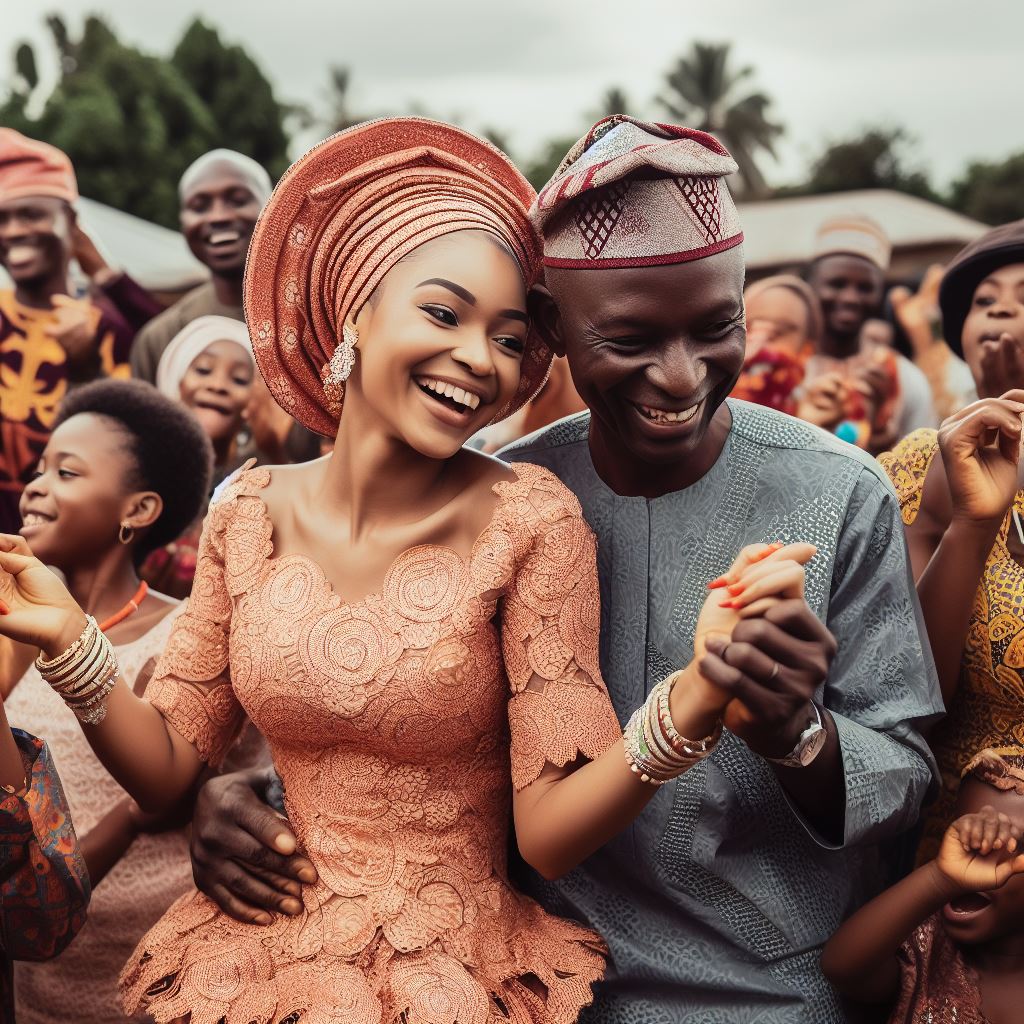Introduction
In the context of marriage in Nigeria, this blog post will explore how monogamy and polygamy define marriage differently.
The purpose of this blog post is to analyze and understand the contrasting aspects of monogamy and polygamy in the Nigerian marriage system.
In Nigeria, marriage is traditionally seen as a sacred institution, forming the foundation of society.
Monogamy, the practice of having only one spouse, is the most common form of marriage in Nigeria.
Polygamy, on the other hand, allows for the possibility of having multiple spouses simultaneously.
In a monogamous marriage, spouses are expected to be completely committed and loyal to each other.
Polygamous marriage, however, acknowledges and legalizes the presence of multiple spouses.
Polygamy in Nigeria is deeply rooted in cultural and religious traditions, allowing men to marry multiple wives.
Although monogamy is often seen as the ideal form of marriage, polygamy is widely accepted and practiced in Nigeria.
When it comes to inheritance and property rights, marriages in Nigeria have different implications based on monogamy and polygamy.
Basically, the concept of marriage in Nigeria is defined differently when it comes to monogamy and polygamy.
Definition and Background
- Monogamy is the practice of having only one spouse at a time.
- Polygamy is the practice of having multiple spouses simultaneously.
- In Nigeria, both monogamy and polygamy have historical roots dating back to ancient civilizations.
- Monogamy is more prevalent in urban areas influenced by Western cultures.
- Polygamy is still widely practiced in rural areas, particularly among certain Nigerian ethnic groups.
The prevalence of Polygamy in Nigerian cultures
In many Nigerian cultures, polygamy has been a traditional and widely accepted practice for centuries.
Hausa Culture
- Polygamy is deeply rooted in the Hausa culture, and it is considered a symbol of wealth and masculine power.
- Men are encouraged to have multiple wives to ensure the continuation of their lineage.
- Having multiple wives is often seen as a demonstration of a man’s social status.
Yoruba Culture
- In Yoruba culture, polygamy was common in the past, but it has become less prevalent in urban areas due to Western influence.
- Polygamy is still practiced in rural Yoruba communities, particularly among traditional rulers and wealthy individuals.
- Having multiple wives is seen as a way to establish political alliances and strengthen social connections.
Igbo Culture
- Polygamy was not traditionally common in Igbo culture.
- However, in certain circumstances, such as the death of a sibling or infertility of a wife, a man could marry another woman.
- Today, monogamy is widely practiced among the Igbo people, largely influenced by Western norms.
Shift towards Monogamy
With urbanization, globalization, and the influence of Western cultures, there has been a gradual shift towards monogamy in Nigeria.
Education and Economic Factors
- Increased education levels and economic opportunities for women have contributed to a decline in polygamy.
- Women are now seeking individual freedom and less dependence on men, leading to a preference for monogamous marriages.
Changing Views on Gender Equality
- As gender equality becomes a more prominent issue, many Nigerians are embracing monogamy as a way to promote equal rights within a marriage.
- Women are advocating for their rights and actively challenging the traditional norms that support polygamy.
Legal Regulations
- The Nigerian government has introduced laws that reinforce monogamy and restrict the practice of polygamy.
- Legal provisions now require spouses to give their consent before a man can marry another woman in certain regions of Nigeria.
While polygamy has long been a tradition in Nigeria, there is a growing trend towards monogamy influenced by various factors.
As Nigeria continues to evolve socially and culturally, the definition and practice of marriage are being redefined to accommodate changing values and norms.
Read: Sustaining Love: Key Prayers for Long-lasting Nigerian Marriages
Monogamy: The Western Ideal
The influence of Western culture on Nigerian society cannot be overlooked, especially when it comes to the perception of marriage.
Western ideals, particularly monogamy, have shaped the way Nigerians view and practice marriage.
In this section, we will explore the impact of Western culture on Nigerian society, the perception of monogamy as the “proper” form of marriage, and the numerous benefits of monogamy.
Influence of Western Culture
- Nigeria, like many other African countries, has been greatly influenced by Western culture.
- Due to colonization, Western ideals and values have seeped into Nigerian society.
- This influence can be seen in various aspects of Nigerian life, including marriage.
Perception of Monogamy
- Western ideals have led to the perception of monogamy as the “proper” form of marriage in Nigeria.
- Monogamy is seen as the norm and anything other than that is often frowned upon.
- Religion, particularly Christianity, has played a significant role in promoting monogamy as the ideal.
- Western media, such as movies and television shows, also contribute to the perception of monogamy.
Benefits of Monogamy
- Emotional stability is a major benefit of monogamy. Partners can build a deep emotional connection.
- Commitment is another advantage of monogamy. Couples are dedicated to one another and work through challenges.
- In monogamous relationships, partners share equal responsibility and work together as equal partners.
- Monogamy provides a stable environment for raising children, allowing for better family dynamics.
- Sexual exclusivity is often associated with monogamy, reducing the risk of sexually transmitted infections.
Generally, the influence of Western culture on Nigerian society has shaped the perception of monogamy as the “proper” form of marriage.
Western ideals and values, propagated through colonization, religion, and media, have greatly influenced Nigerians’ understanding of marriage.
Monogamy is perceived as the ideal due to its countless benefits, including emotional stability, commitment, and equal partnership.
It is essential to recognize that different cultures have different ideals and forms of marriage, and there is no one-size-fits-all approach.
Read: Marriage Challenges? Here’s a Prayer Guide for Nigerian Couples
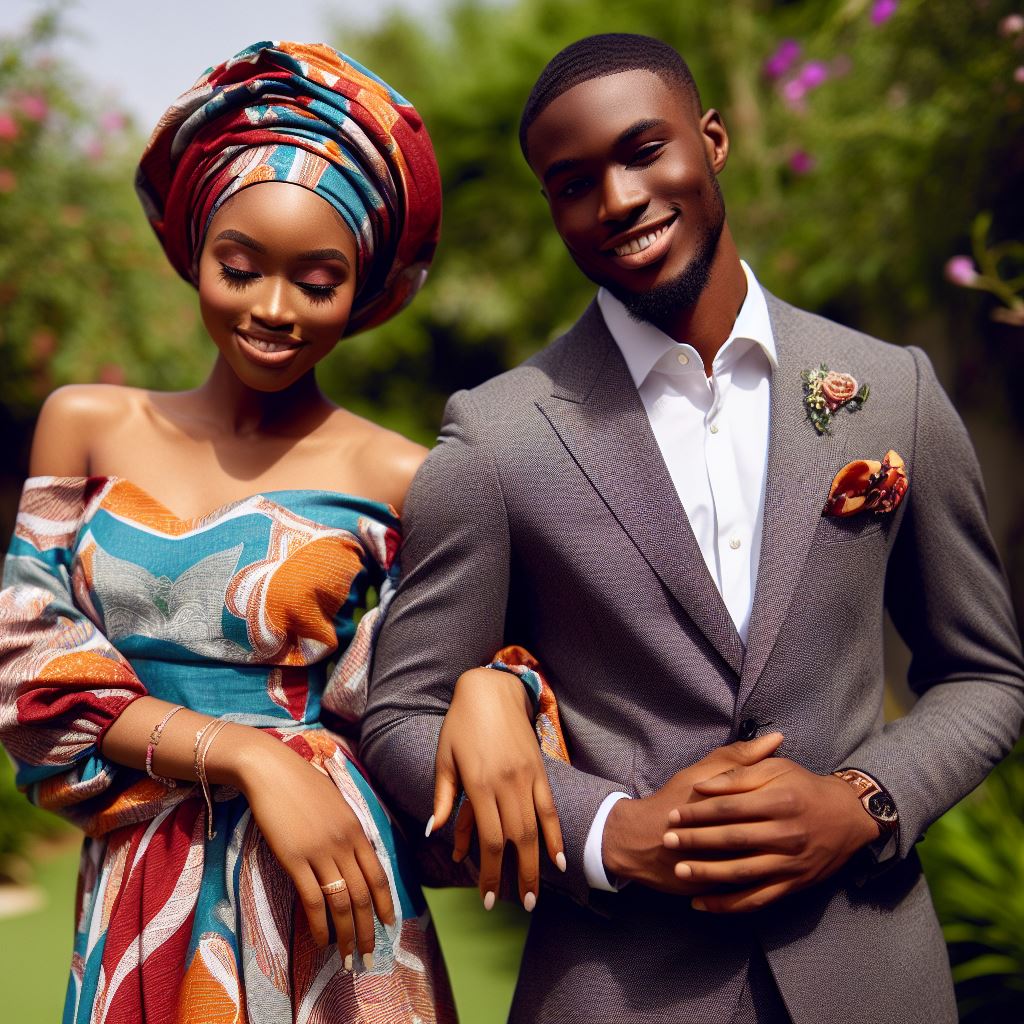
Polygamy: Cultural Practices and Perspectives
When it comes to the acceptance and practice of polygamy in Nigeria, cultural and religious reasons play a significant role.
Polygamy, the act of having multiple spouses concurrently, is widely accepted and practiced in many Nigerian communities.
Let’s explore the various perspectives and factors that contribute to the prevalence of polygamy in Nigeria.
Symbol of Wealth, Power, and Social Status
In Nigeria, polygamy is often seen as a symbol of wealth, power, and social status.
Having multiple wives is considered a manifestation of a man’s success and ability to provide for his family.
In some communities, the number of wives a man has reflects his prosperity and influence.
In a society where having male descendants is highly valued, polygamy provides a means to secure one’s legacy.
Additionally, religious beliefs and traditions also contribute to the acceptance of polygamy in Nigeria.
Islam, which is widely practiced in the country, permits men to have up to four wives as long as they can treat them equally.
This religious allowance further strengthens the cultural acceptance of polygamy and its association with societal status.
Challenges and Disadvantages of Polygamy
Despite the cultural acceptance and perceived benefits, polygamy comes with its challenges and disadvantages.
One significant issue is the potential for jealousy among wives.
Sharing a husband is undoubtedly a source of emotional strain, as each wife may struggle with feelings of insecurity, competition, and a sense of unfulfilled emotional needs.
Another disadvantage is the possibility of favoritism among wives.
The husband may naturally develop closer relationships with some wives, leading to feelings of neglect or resentment among those who receive less attention and affection.
Furthermore, polygamy can perpetuate inequality among wives.
While the husband may aim to treat his wives fairly, the reality is that resources and attention are often distributed unevenly.
This can create power imbalances within the family, resulting in an unfair quality of life for some wives.
Moreover, polygamy poses practical challenges for the husband, as managing multiple households and meeting the needs of numerous wives and children can be logistically demanding and financially burdensome.
Essentially, polygamy in Nigeria is deeply rooted in cultural practices and religious beliefs.
It is often associated with wealth, power, and social status.
However, it is vital to acknowledge the potential challenges and disadvantages polygamous relationships bring, including jealousy, favoritism, and inequality among wives.
While polygamy continues to be deeply ingrained in Nigerian culture, attitudes are gradually shifting.
Modern influences and changes in societal norms are challenging the traditional acceptance of polygamy, emphasizing the importance of individual choice, gender equality, and mutual consent in marriage.
Read: Prayers for Every Season of Your Nigerian Marriage Journey
Legal and Social Perspectives
Legal Status in Nigeria
In Nigeria, monogamy is the legally recognized form of marriage, as outlined in the Marriage Act of 1990.
Nigerian Legal System
- The Nigerian legal system acknowledges monogamous and polygamous unions, with certain provisions.
- For monogamy, the Marriage Act sets forth rules for registration, divorce, and inheritance.
- Polygamous marriages are recognized under customary law, subject to regional variations.
- However, polygamy must be in compliance with Islamic or customary laws, but it has limited legal protection.
Social Attitudes in Nigeria
- Traditional values often favor polygamy, reflecting historical cultural norms.
- Social attitudes towards monogamy are influenced by modernization, with some embracing it as a symbol of progress.
- Changing perspectives on polygamy among younger generations include:
a. Increased emphasis on gender equality.
b. Economic factors discouraging the financial burden of multiple spouses.
c. A preference for emotional and financial stability within monogamous unions.
d. A trend towards personal choice in marriage structure. - Despite these shifts, polygamy continues to exist due to its historical significance and cultural acceptance.
In general, Nigeria’s legal system acknowledges both monogamous and polygamous marriages, although monogamy is legally favored.
Social attitudes are evolving, particularly among the younger generation, as they reevaluate the traditional preference for polygamy in favor of monogamy’s perceived benefits.
Read: Intimacy Beyond Words: Incorporating Prayer in Marital Life
Conclusion
In this blog post, we explored the different ways in which marriage is defined through the lenses of monogamy and polygamy in Nigeria.
We discussed how monogamy is the dominant form of marriage, emphasizing the importance of exclusivity and commitment between two individuals.
On the other hand, we learned about polygamy, which allows for multiple partners and can be seen as a way to strengthen social ties and provide economic support.
It is clear that the definition of marriage varies greatly depending on cultural, religious, and personal beliefs.
While monogamy is seen as a more socially acceptable and legally recognized form of marriage in Nigeria, polygamy still exists and is practiced by a significant portion of the population.
As we delved into the topic, we discovered that the definition of marriage is more complex and nuanced than we might have initially thought.
It not only encompasses love and companionship but also intersects with social, economic, and religious aspects of life.
In reflecting on this discussion, we are left with the thought-provoking question of whether marriage should be exclusively defined as a monogamous union or if there is room for alternative forms like polygamy.
How do these different definitions shape our understanding of love, commitment, and family dynamics?
It is a question worth pondering and discussing further to gain a deeper understanding of the diverse ways in which marriage is defined and valued in different societies.

